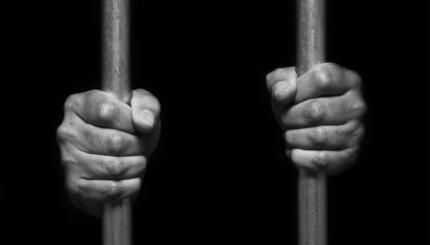Jewish teachers, legalists and moralists, never tired of stressing that strict decorum and reverence are to be observed by worshippers in the synagogue. There must be no idle conversation in the synagogue and the worshippers must always be aware of the fact that they are in the presence of God. These constant appeals for decorum in the synagogue demonstrate that the problem was acute, naturally so since for many Jews the synagogue was the main place for social intercourse, often serving, whether or not the rabbis approved, as a kind of club.
Behavioral Norms in Rabbinic Law
The mishnaic rule (Berakhot 9:1) that one must not use the Temple Mount as a shortcut is applied in the [Babylonian] Talmud (Berakhot 62b) to the synagogue as well. This together with other rules is recorded in the [16th century standard code of Jewish law] Shulhan Arukh (Orah Hayyim 151) under the heading: “The Laws With Regard to the Sanctity of the Synagogue.” This section of the Shulhan Arukh reads in part:
“One should not behave in a frivolous manner in a synagogue or house of study, by cracking jokes there, for instance, or by indulging in humorous or pointless gossip. One should not eat or drink there nor should one adorn oneself there or walk about there. One should not enter there in summer to cool off or in winter to seek shelter from the rain. In an emergency, scholars and their disciples are permitted to eat and drink there.” ([The commentator Moshe] Isserles[, a contemporary of the author of the Shulhan Arukh, whose authoritative glosses to that work recording opinions and practices of Ashkenazic Jewry ] adds: “Some say that in a house of study this is permitted even where there is no emergency.”)
[The Shulhan Arukh continues:] “No monetary calculations should be made there unless they are for religious purposes, collecting money for charity, for example, or for the redemption of captives. No funeral orations should be delivered there unless it is for one of the leading citizens of the city when all assemble there for the purpose. If a man finds it necessary to enter there for his own needs, to call someone, for instance, he should read or study something and then call him so that it should not appear as if he has entered for his own needs…. It is forbidden to have even a short nap in a synagogue but this is permitted in a house of study. It is permitted to eat and sleep in the synagogue if it is for religious purposes. For this reason [of religious purpose overriding the prohibition] one may sleep in the synagogue on Yom Kippur.”
With your help, My Jewish Learning can provide endless opportunities for learning, connection and discovery.
The reason why the Shulhan Arukh treats the “house of study” more leniently than the synagogue is because scholars spend a good deal of their time in the former, so that a dispensation is required in order to enable them to study without interruption. Otherwise, in the rabbinic view, the “house of study” possesses a greater degree of sanctity than the synagogue, a typical illustration of the high significance the [talmudic] rabbis attached to the study of the Torah above all other religious obligations
Appropriate Synagogue Behavior is a Socially Determined Concept
Curiously enough, the Shulhan Arukh rules that it is permitted to spit in the synagogue provided the saliva is erased with the foot or where there is an absorbent material there so that the saliva is not seen. This ruling obviously has to be seen against the social background of the times. In these matters it is generally held, nowadays, that Western standards of decorum should be preserved, on the grounds that Jews should not behave less decorously than Christians do in church.
For this reason Orthodox Rabbis forbid smoking in the synagogue (but not in the “house of study”) [even on days when Sabbath and holiday prohibitions do not apply]. While there is no actual prohibition against smoking in the synagogue, the sources being compiled before tobacco had been brought to Europe, since Christians do not smoke in church, for Jews to do so would suggest that they have less respect than Christians for the place in which they worship.
It was the common practice in the Middle Ages for pious folk to donate candles to the synagogue, not as votive offerings, of which Judaism knows nothing, but in order to keep the building well lit. Nowadays, when illumination is provided by electric lights, this practice is no longer in vogue, although in some synagogues tallow candles are still used in front of the reader’s desk.
Selling an Unused Synagogue Building
The question of selling a synagogue that is no longer used has been much discussed. As stated above, the question is discussed in the Mishnah (Megillah, Chapter 3) and in the talmudic elaboration of the Mishnah. The final ruling is that when a synagogue can no longer be used it may be sold, on the grounds that synagogues are sanctified on condition that they are used as such, so that once the synagogue is no longer used it loses its sanctity and may be sold. The Talmud does make a distinction between a synagogue in a village and one in a large city. A synagogue in a village belongs to the villagers and can be sold by them. But a synagogue in a large city does not belong solely to the citizens, since the frequent visitors from other towns have presumably contributed to the building and are thus part-owners, so that the town council has no right to dispose of their share.
Later authorities, however, hold that since, nowadays, each synagogue has its own members who contribute to its upkeep, these members are the sole owners and the synagogue may be sold when it is no longer used as such even where it is in a large town. For this reason a synagogue may be sold to be used as a church or a mosque, although here it is common practice to sell the synagogue indirectly through a third party. The accepted opinion among the authorities is that, conversely, it is permitted to buy a mosque or a church to be used as a synagogue, though, in the case of the church, the building must not contain any symbols of the Christian faith, built-in crosses for example.
The main function of the synagogue is for public worship, but there is, of course, no objection to a person entering the synagogue for private meditation at other times than those of public worship. The advice is given in the sources to proceed hurriedly when going to the synagogue but to depart from the synagogue with unhurried steps, to indicate eagerness to be there and reluctance to leave. The verse homiletically interpreted in this connection is: “We shall run to know the Lord” (Hosea 6:3). The verse does not, of course, refer to the synagogue but is made to yield the meaning that it is right “to run” to know God and to go to the synagogue is to proceed to a greater knowledge of the divine.
Attitudes to the Synagogue: Reverence, Mystical Awe, Social Utility
While all Jews have a reverential attitude towards the synagogue, some no doubt finding much significance even in the mystical understanding of the synagogue as the abode of the Shekhinah [the divine presence], a degree of resistance has come about in modern times, as it did in former times, to the idea that Judaism is synagogue-oriented. Rabbis are fond of preaching that Judaism demands far more than regular worship in the synagogue and that, for example, many of the highest ideals of the Jewish religion are realized in the Jewish home rather than in the synagogue.
Worship in the synagogue is a sublime end in itself but it is also a means of inspiring Jews to lead a full Jewish life and much of life has its place outside the synagogue. There is a “Torah” for the synagogue, detailed rules, regulations, and attitudes to be adopted in the synagogue, but this is only part, albeit a significant part, of the Torah as a whole. The Torah is always described as “the Torah of Life”–that is, of life as a whole.
For all that, the majority of Jews, nowadays, still view the synagogue as the best means of retaining loyalty to Judaism and preserving Jewish identity. As with regard to other particular aspects of Judaism, synagogal life is both an end in itself and a means to the ultimate end of Jewish life, the worship of God in every one of life’s situations: “In all thy ways acknowledge Him, and He will direct thy paths” (Proverbs 3: 6). Contemporary rabbis thus find themselves in a dilemma. On the one hand they feel obliged to urge Jews to attend synagogue services regularly but, on the other hand, they cannot countenance the view that synagogue attendance is the be-all and end-all of Judaism. It is hard to determine how many Jews are regular attenders at the synagogue during the rest of the year, but a majority of Jews are found there on Yom Kippur, which exercises a powerful fascination over Jews as the great day of reconciliation with their God.
The Synagogue Is Used for More than Just Worship
This has been the problem of the synagogue, to make it a place apart in which the Jew communes with God together with his fellow worshippers and, at the same time, to make it a place wide open to the daily concerns of its members. A complete division between the sacred and the secular was never attempted. Appeals for charity were regularly made in the synagogue, hospitality to visitors offered there and mourners comforted there. It was not unknown for services in the medieval synagogue to be interrupted by someone with a complaint in financial matters that was not being adequately addressed, the complainant refusing to allow the services to proceed until he had obtained an assurance that his case would be considered.
Against these attempts at comparative “secularization,” some Ashkenazi Rabbis refused to allow parents to kiss their children in the synagogue where, they argued, love should be expressed only to God. Orthodox Rabbis, especially in Hungary, refused to allow marriages to be celebrated in the synagogue, as was the Sephardi practice, To have the huppah [wedding canopy] in the synagogue with an address by the rabbi to the bride and bridegroom, was, they held, an obvious attempt at copying the practices of the church, apart from the fact that the huppah should ideally be in the open air. Nowadays it is the norm, however, even among the Orthodox, to have the huppah in the synagogue.
Reprinted with permission from The Jewish Religion: A Companion, published by Oxford University Press.
Ashkenazi
Pronounced: AHSH-ken-AH-zee, Origin: Hebrew, Jews of Central and Eastern European origin.
Mishnah
Pronounced: MISH-nuh, Origin: Hebrew, code of Jewish law compiled in the first centuries of the Common Era. Together with the Gemara, it makes up the Talmud.
Talmud
Pronounced: TALL-mud, Origin: Hebrew, the set of teachings and commentaries on the Torah that form the basis for Jewish law. Comprised of the Mishnah and the Gemara, it contains the opinions of thousands of rabbis from different periods in Jewish history.
Torah
Pronunced: TORE-uh, Origin: Hebrew, the Five Books of Moses.


